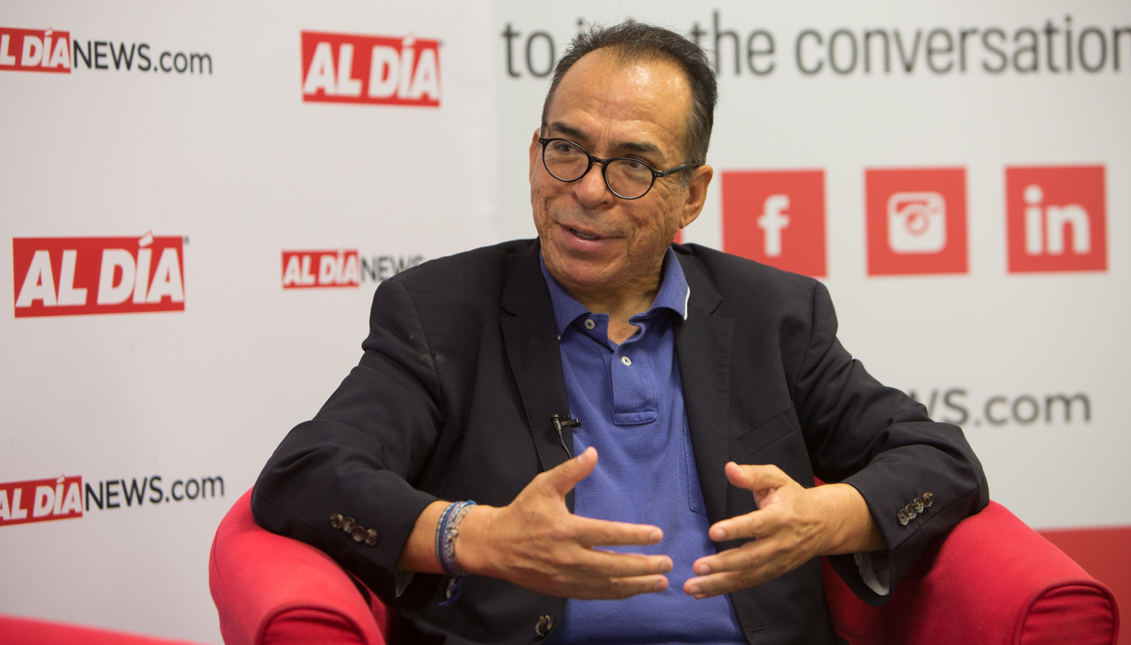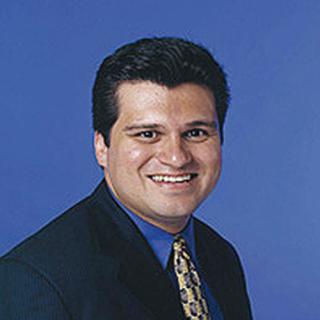
Mexican-Americans search for their 'Homelands' and find themselves
MORE IN THIS SECTION
As a reporter - currently for The Dallas Morning News, and earlier at The El Paso Herald-Post and The Wall Street Journal - Corchado has always been a good storyteller. But when he began writing books, he had to learn to tell his own story. He has become good at that, too.
Corchado's engaging new book - "Homelands: Four Friends, Two Countries, and the Fate of the Great Mexican-American Migration" - explores the complicated landscape of what he calls "Mexico in the United States."
I know this place. I visit it often with the help of an adorable guide: my wife.
There came the day when - exasperated at the extent of my assimilation - she demanded to know: "Exactly what kind of Mexican are you?" With a strong dose of snark, I responded: "The American kind!"
That's me. Mexican-American. The "Mexican" half humbly asks that you accept the hyphen; the "American" half is ornery, so it doesn't care either way.
Making a Mexican-American is like making mole. Muchos ingredients: insecurity about our Spanish, feeling "Mexican" in America but "American" in Mexico, annoyance with a homeland that drove out our Mexican ancestors but now welcomes our American dollars when we go south of the border on vacation.
It's all Greek to my wife, who was born in Guadalajara and came to the United States legally as a child. She considers herself a Mexican living in the United States.
Our kids play a game we call "Parental Identity Crisis." Ask them: "What's daddy?" They'll stammer: "He's from California but his grandpa was from Mexico. His parents were born in the United States. So he's American?" Then ask them: "What's mommy?" And they'll fire back: "Oh, she's Mexican!"
According to Corchado, my wife is also my "better 7/8." It's a classification she earned years ago when my friend - who was born in Durango, Mexico - met her and decided that a mere 50 percent was not a large enough fraction.
Corchado was right about the math. He is also right about how, with Mexican-Americans in the United States, no two journeys are the same.
His book is about four friends - all of them Americans of Mexican origin who gather in a Mexican restaurant in Philadelphia in 1987. In the shadow of the Immigration Reform and Control Act, which legalized nearly 3 million people, the compadres start a dialogue about immigration, politics, family, love and how to succeed as an American while remaining Mexican.
The conversation lasts 30 years, against the backdrop of a massive migration of people from Mexico to the United States.
Corchado's first book was about what Mexico is becoming because of Americans' appetite for illegal drugs. The new book is about identity and what America has become due to its addiction to illegal-immigrant labor.
The veterano chronicler can these days be found back home in El Paso, where his parents settled after leaving Mexico. He now serves as the Morning News' U.S.-Mexico border correspondent.
Corchado considers himself a Mexican-American. Raised in the United States but still in love with Mexico, he doesn't feel like he has to choose one country over another.
This is where we're different. A major theme in "Homelands" is fitting into the United States. I've never worried much about that. This is my country. I don't feel emotionally connected to Mexico, which is just another exotic place to visit on vacation.
Corchado will have none of it.
"Mexico is right next door, a constant reminder of our homeland, or our parents' or grandparents' homeland," he tells me. "It's like slamming the door to your relatives when they're standing right across from you. Even those who want to forget find it increasingly difficult to cut the ties. I certainly don't want to forget."
I respect that. Yet my loyalty lies on this side of the border. I despise those wealthy Mexican elites who look down on poor, uneducated and dark-skinned immigrants washing dishes in Las Vegas or picking peaches near Fresno.
Corchado and I are different varieties of Mexican-Americans. I'm a Chicano Yankee Doodle Dandy. My friend is a free agent who won't commit to one team.
He is also like the child in a troubled marriage who steps in-between his parents when they're bickering. Mexico is his mother. The United States is his father. The border - the Southwest's version of a cultural Demilitarized Zone - is his living room.
But what a perfect spot to gather, sip tequila and swap good stories.







LEAVE A COMMENT:
Join the discussion! Leave a comment.